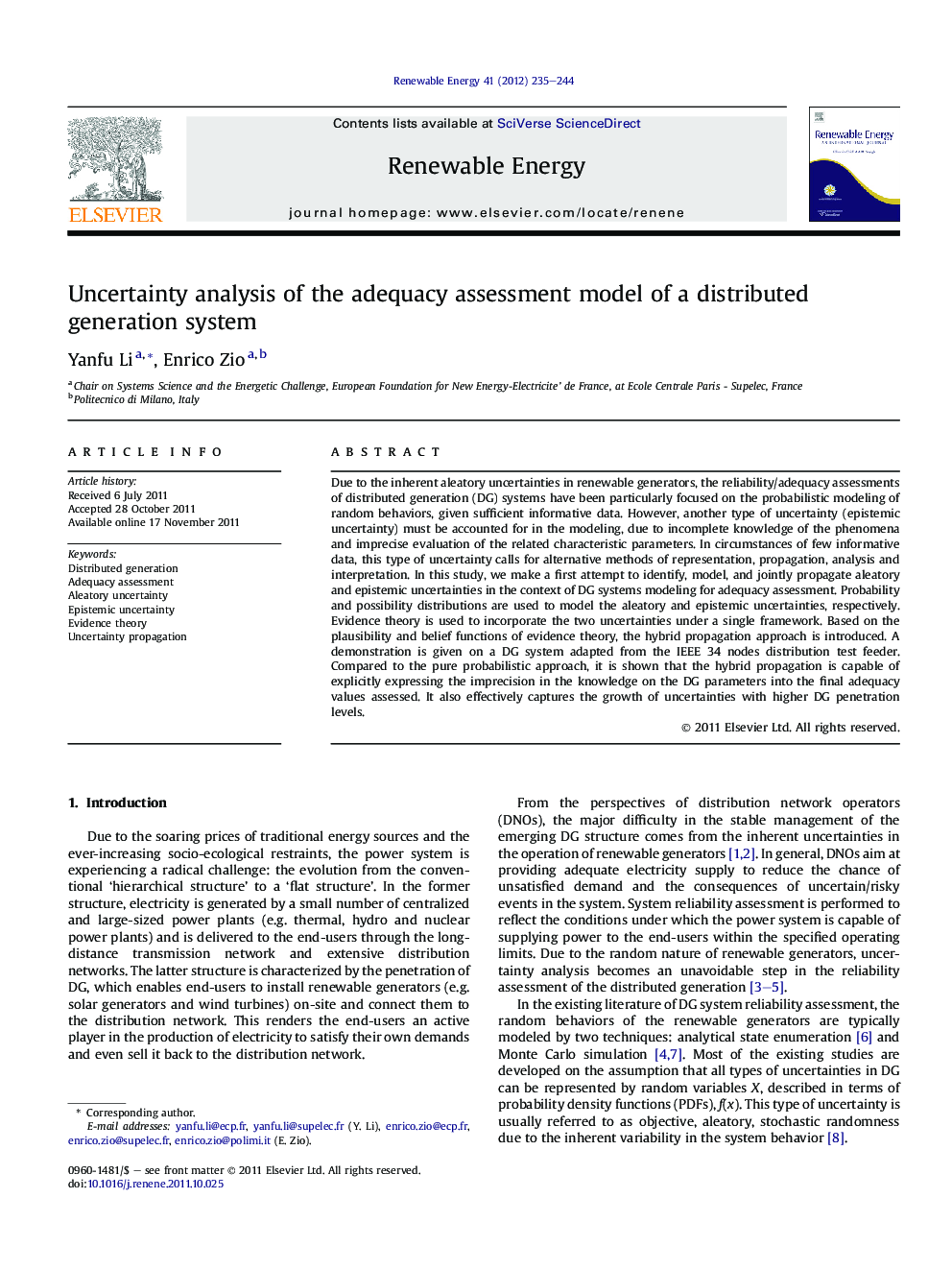| کد مقاله | کد نشریه | سال انتشار | مقاله انگلیسی | نسخه تمام متن |
|---|---|---|---|---|
| 301117 | 512497 | 2012 | 10 صفحه PDF | دانلود رایگان |

Due to the inherent aleatory uncertainties in renewable generators, the reliability/adequacy assessments of distributed generation (DG) systems have been particularly focused on the probabilistic modeling of random behaviors, given sufficient informative data. However, another type of uncertainty (epistemic uncertainty) must be accounted for in the modeling, due to incomplete knowledge of the phenomena and imprecise evaluation of the related characteristic parameters. In circumstances of few informative data, this type of uncertainty calls for alternative methods of representation, propagation, analysis and interpretation. In this study, we make a first attempt to identify, model, and jointly propagate aleatory and epistemic uncertainties in the context of DG systems modeling for adequacy assessment. Probability and possibility distributions are used to model the aleatory and epistemic uncertainties, respectively. Evidence theory is used to incorporate the two uncertainties under a single framework. Based on the plausibility and belief functions of evidence theory, the hybrid propagation approach is introduced. A demonstration is given on a DG system adapted from the IEEE 34 nodes distribution test feeder. Compared to the pure probabilistic approach, it is shown that the hybrid propagation is capable of explicitly expressing the imprecision in the knowledge on the DG parameters into the final adequacy values assessed. It also effectively captures the growth of uncertainties with higher DG penetration levels.
► We propagate aleatory and epistemic uncertainties in distributed generation system.
► We use probability and possibility distributions to model these two uncertainties.
► Based on evidence theory, the hybrid uncertainty propagation approach is developed.
► Our approach can explicitly expressing the imprecision in the knowledge.
► Our approach can capture the growth of uncertainties with higher DG penetrations.
Journal: Renewable Energy - Volume 41, May 2012, Pages 235–244